Our Israel tour was definitely a highlight of the past few years. And our readers (perhaps even you) followed our journey with joy and excitement. Even on our first day in the Holy Land, we were thrilled and so glad we made the trip despite the travel warnings. Israel blew us away and pierced our hearts. Okay, you hear that from us quite often when we return from a trip.
That doesn’t mean we’re easily impressed, but it does mean that our world is home to so many fascinating places. We’ve received countless messages about Israel on Facebook, Instagram, and by email. To answer all these questions, we’ve written this truly comprehensive guide. So come with us through one of the most exciting countries in the Middle East. Have fun browsing!
What you should also know:
- Best time to travel to Israel
- Currency & Money Israel
- Driving in Israel
- Flying a drone in Israel
- Entry & Israel Visa
- Safety in the country
- Costs of a trip to Israel
- Reasons for a trip to Israel
- Tel Aviv Highlights & Tips
- All about Jerusalem
- What else you should know:
- Why is a round trip to Israel worthwhile?
- How much time do I need for a round trip?
- How much do the flights cost?
- Do I need a visa?
- What is the climate like in Israel?
- How did your route through the Holy Land go?
- What are the highlights in Israel?
- In which currency do I pay on site?
- People, religions, and languages
- What does the “Middle East conflict” actually mean?
- Where can I book cheap accommodation?
- How do I best book a Rental car?
- Is driving in the country safe?
- Can I also travel through the country by bus?
- Food and drink in Israel
- How much does a tour of Israel cost?
- How safe is a tour?
- What’s the internet like?
- Dos and don’ts
Why is a tour of Israel worthwhile?
To put it bluntly – Israel is amazing! Rarely has an entire country captivated us as much as Israel. The Middle East may not be to everyone’s taste, but Israel is a must-see. A few years ago, we certainly thought very differently about Israel and the Middle East than we do today.
In the media, you mostly only read reports about rocket attacks, the Gaza Strip, bombs, and other negative events. How can you possibly think positively about this country, right? And luckily, we made this trip and can now answer many of the questions you may still have in your head.
In Israel, cultures, languages, ethnicities, and people from all over the world mingle. The country is a highly developed industrial nation and the 34th-largest economy in the world. In the Middle East, Israel offers the highest standard of living and the fifth highest in all of Asia. Did you know that? The country is full of adventures, experiences, and surprises. One thing is certain – you’ll leave this country with different eyes after your visit. Why? Because an intensive Israel tour answers questions, opens eyes, and broadens your horizons. Why a trip to Israel is worthwhile.
How much time do I need for a round trip?
As always, this depends on your route. However, we can tell you that you can have a varied and unstressful round trip around Israel in just one week. Of course, you won’t see the entire country in one week, but you will see many parts of it. We still recommend taking at least 10 to 14 days.
This way, you can perhaps visit a few more highlights in addition to our sample route or spend more time in some places. Since the distances in Israel are never really long, you can get from A to B quickly. Israel stretches just 470 kilometers from north to south. From east to west, it’s 135 kilometers, just 15 at its narrowest point.
How much do the flights cost?
Of course, you’ll need suitable flights for your Israel tour. Getting to Israel from Germany is really inexpensive. For example, you can often fly with the low-cost airline Ryanair for just €40 round trip to Eilat/Ovda. Then you’ll land in the very south of the country, right on the Red Sea. The cheapest price only includes hand luggage, which is perfectly sufficient for a week. You can depart from Bremen, Düsseldorf-Weeze, Frankfurt-Hahn, Berlin, and Karlsruhe.
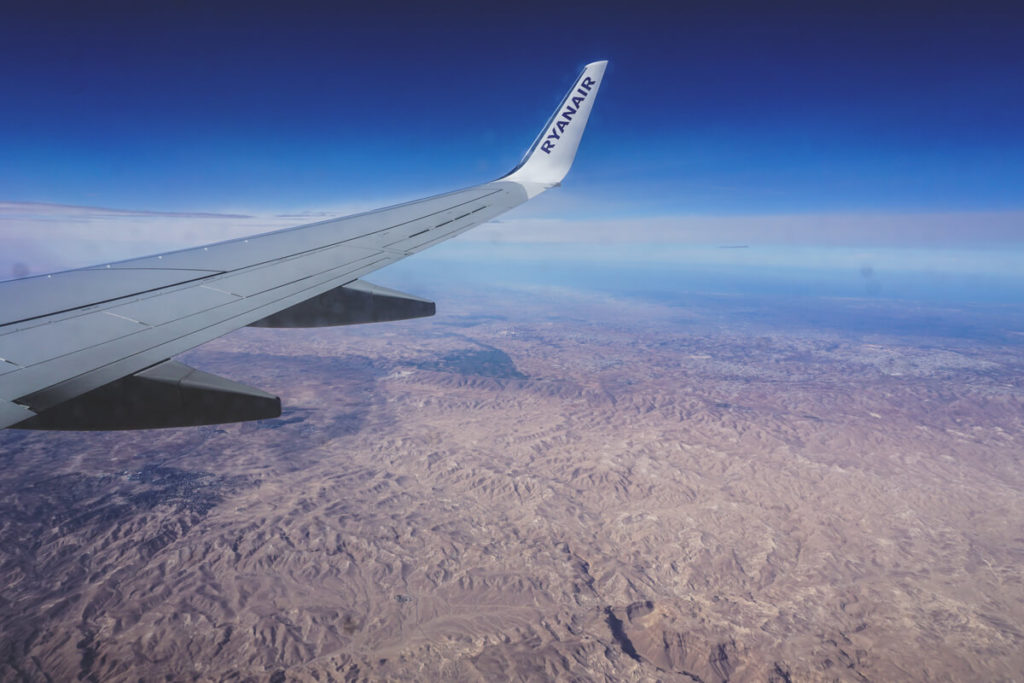
The flight time to Eilat from Berlin is around 4.5 hours. Tel Aviv can be reached from Germany in just 4 to 4.5 hours. With airlines like Turkish Airlines, Pegasus, Israel Airlines, Easyjet, and Germania, you can usually fly there and back for under €200. Please note, however, that usually only hand luggage is included. You can depart from Nuremberg, Karlsruhe, Düsseldorf, Berlin, Hamburg, Frankfurt, Stuttgart, and Munich.
Do I need a visa?
You do not need a visa to enter Israel. At the airport in Tel Aviv or Ovda, you can obtain a residence permit for a maximum of three months. However, your passport must be valid for at least six months upon entry. If you have stamps from Arab states or Iran in your passport, be prepared for security interviews by Israeli security forces.
Generally, you will be bombarded with many questions, so don’t be surprised. Allow extra time at the airport upon departure. The security checks of your luggage and the interviews take a lot of time. You will not receive a stamp in your passport, but rather an entry and exit card. You must keep this safe during your trip and present it upon departure. You can find our detailed article here: Entry & Visa Israel.
What’s the climate like in Israel?
We were in Israel in December and had really great weather every day, with pleasant to very warm temperatures (22 to 28°C). It all depends on the region you’re traveling in. Due to different altitudes, there are local weather differences. For example, it’s usually much warmer on the Red Sea in the south of the country than on the Mediterranean coast in Tel Aviv. In the north, summers are very hot, reaching up to 40°C. Humidity is high, and winds also increase. In winter, however, the thermometer rarely drops below 10°C.
The south is characterized by subtropical dryness. In summer, it’s more pleasant there than in the hot north. However, it rains less frequently in the south; no more than 30mm of precipitation can be expected at any time of year. Between November and March, it rains more frequently, but only on up to 9 days a month. We’ve heard that flash floods can occur quickly during these periods. In summer, it almost never rains in the entire country (July and August = the dry season).
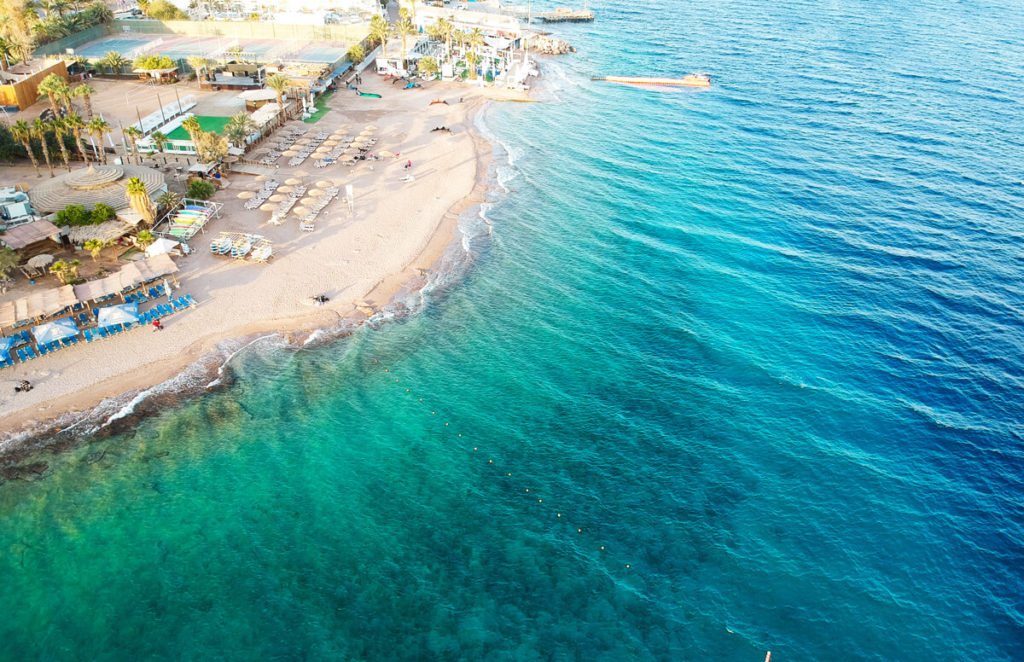
It’s not easy to say what the best and ideal time for a trip through Israel is. We like to travel in the off-season anyway and avoid holidays and high season. You can have a wonderful time in Israel, especially in spring and fall. It’s nice and warm then, not too hot. You can also swim in the Mediterranean, the Dead Sea, or, of course, the Red Sea. And who would have thought it? There’s still snow on Mount Hermon until the spring months, so you can even go skiing.
How did your route through the Holy Land go?
Our route for the Israel tour was fantastic! We started in the south of the country, in Eilat. From there, we continued by rental car to the Red Canyon, through the Negev Desert, and to the Ramon Crater. We then continued on to Jerusalem. We spent a few days there before stopping off in Tel Aviv. Finally, we went to the Dead Sea and back to Eilat. We completed this tour in 7 days and can definitely recommend it. We could have done even more, but didn’t want to rush. Our top sights in Israel here.

In total, we covered almost 1,000 kilometers in 7 days. At no point did this Israel round trip feel stressful or overly packed. We spent one night each in Eilat at the beginning and end. We spent two nights in Jerusalem and three nights in Tel Aviv. You can visit many highlights along the way without having to stay overnight in the respective locations. You can also book many day tours from Tel Aviv and Jerusalem, so you don’t even need a rental car.
What are the highlights in Israel?
Israel is full of surprises and sights. Let’s start in the south of the country. The city of Eilat isn’t particularly beautiful, but the surrounding area is. You can snorkel and dive in the Red Sea and enjoy other water sports. The Red Sea is truly unique. Not far from Eilat is the beautiful Red Canyon ➳. You should definitely see it – it’s simply magical! From Eilat, you can also cross the border into Jordan and Egypt (Sinai Peninsula). A detailed guide to Eilat and the surrounding area can be found here ➳.
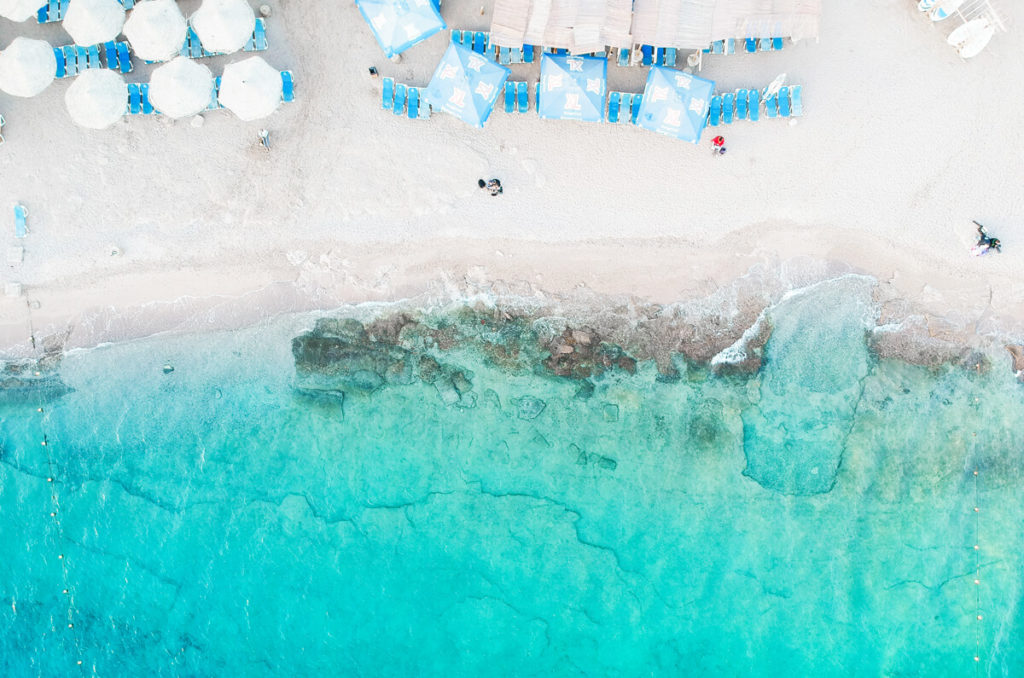
Then your Israel tour continues through the Negev Desert. Besides the world’s largest erosion crater (Ramon Crater), there are several other highlights here. The En Avdat National Park is also recommended, as is the famous Timna Park with its rock formations. The Negev Desert is also home to the local wine route.
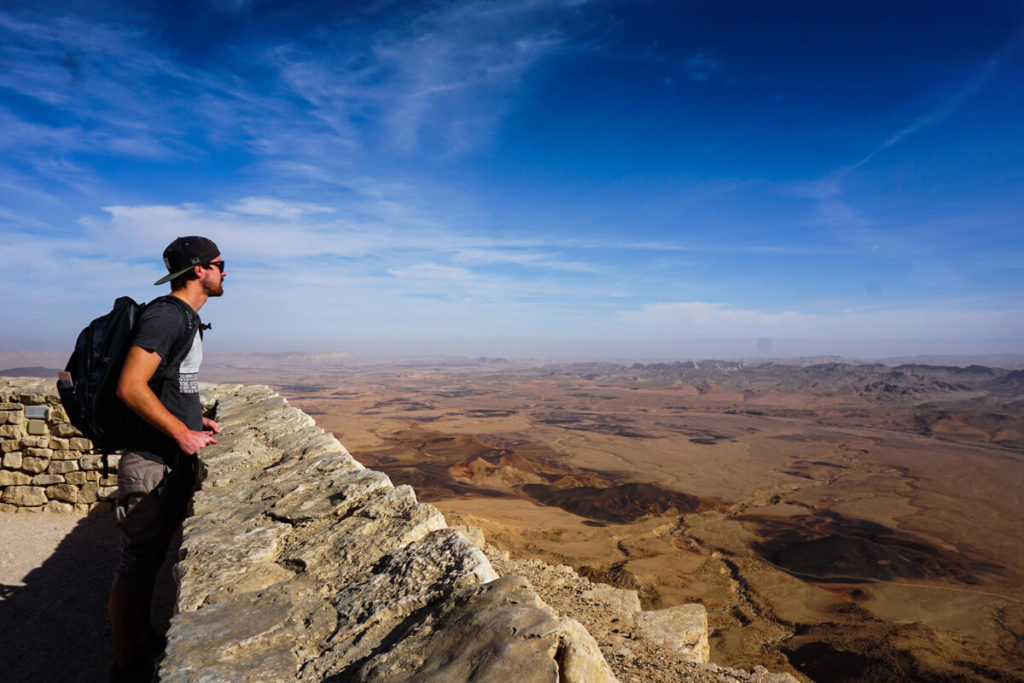
If you want to spend an unforgettable night in the desert, you should head to Khan Be’erot. The breathtaking panorama of the Ramon Crater will surely blow you away. You can also spend the night in a traditional Bedouin tent. You can even go skydiving in the desert and explore countless hiking trails (Israel National Trail). You can find all the information and tips about the Negev Desert here ➳.
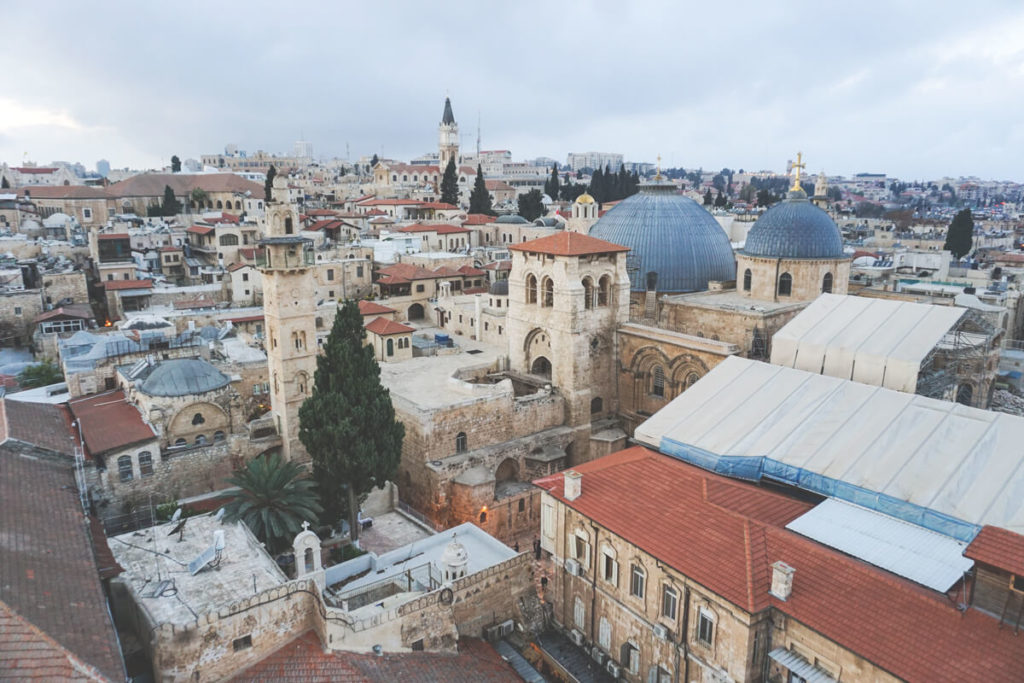
Your tour continues towards Jerusalem. This city is a must-see. Cultures and religions blend here like no other city. Take your time and explore the wonderful and unique Old City. The Muslim Quarter, the Jewish Quarter, the Armenian Quarter, and the Christian Quarter await you here. Jerusalem has so much to offer that we recommend spending at least two nights there (or more if you prefer). You can find the detailed article about Jerusalem here ➳.

One of the coolest cities we’ve ever experienced is definitely Tel Aviv. We would have loved to stay there for three months. The city has a very unique flair and exudes so much coolness and serenity. Tel Aviv is a mix of Berlin, Barcelona, and California. There are cool neighborhoods with lots of street art, the wonderful beach promenade, green parks, great shops, restaurants, and bars, and plenty of culture. For us, the city simply has everything! You can get a detailed Tel Aviv guide here ➳.
But there’s much more to Tel Aviv than just Jerusalem and Tel Aviv. A little further north of Tel Aviv is the coastal town of Haifa. Many tourists visit the Hanging Gardens there, which are said to be truly beautiful. We didn’t go there ourselves because we simply wanted more time in Tel Aviv. But perhaps we will on our next visit. From Haifa, we continue towards Acre. The Old City is surrounded by a massive wall. Within the city walls are many sights such as churches, mosques, museums, and markets.
If you need a vacation in nature, you should head all the way up north to the Galilee. There you’ll find a lush, watery area. Here you’ll find Israel’s highest mountains, as well as forests, mountains, springs, and more remote corners. There are also grottoes (Rosh Hanikra), beaches (Betzet and Achziv), the artists’ quarter in Safed, the old village in Rosh Pina, nature reserves, and even the Tanur waterfall. Other interesting (and religious) places: Nazareth, Bethlehem, Caesarea, Sea of Galilee, Golan Heights, Qasr al-Yahud (Palace of the Jews), West Bank, City of David, Tiberias.
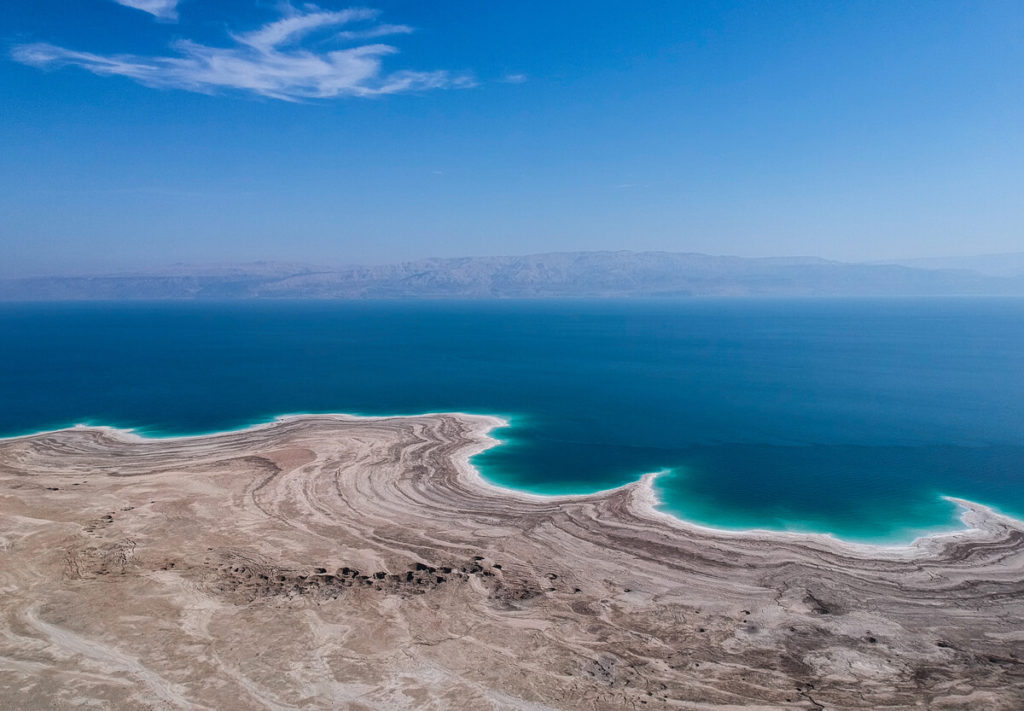
And if you’ve already been to the Red Sea and the Mediterranean, a trip to the Dead Sea is a must. The journey alone is breathtaking. We had to stop and take photos several times on the way to En Gedi. En Gedi is a beautiful national park with springs, streams, and small waterfalls in the middle of the dry, rocky desert. We went on a lovely hike there.
Not far away, the Masada fortress stands on a rocky plateau. Numerous sunrise tours are offered from almost all locations. There are various bathing resorts at the Dead Sea; we ourselves visited Ein Bokek.You can find a detailed article about the Dead Sea and its surroundings here ➳.
What currency do I use when I pay?
In Israel, you pay with the Israeli shekel. Currently, you get approximately 4.27 shekels (NIS/ILS) for 1€. There are banknotes of 20, 50, 100, and 200 NIS, as well as coins of 1/2, 1, 2, 5, and 10 shekels. You can easily withdraw cash from ATMs with the right credit card. You can find ATMs in all major areas, often at gas stations.
Keep in mind that ATM fees may occasionally apply. However, these fees are usually very low (less than €1 per withdrawal). If you pay with your credit card in Israel, you will also have to pay a foreign transaction fee of up to 1.75%. Don’t have a credit card yet? We have prepared a comprehensive credit card comparison for you. There you will find the best credit cards and all the necessary information. Click here for the credit card comparison ➳
People, Religions, and Languages
Israel is the only country where the Jewish population forms a majority. Approximately 8.5 million people live in Israel, including approximately 6.1 million Jews and 1.7 million Arabs. Most people live in the urban centers of Jerusalem and Tel Aviv, followed by Haifa, Rishon LeZion, Ashdod, and Beer Sheva. The beautiful Negev Desert covers approximately 60% of the country’s total area, yet only about 10% of the population lives there. Israel also has the ninth-highest life expectancy in the world, at 81.9 years. Crazy, right?
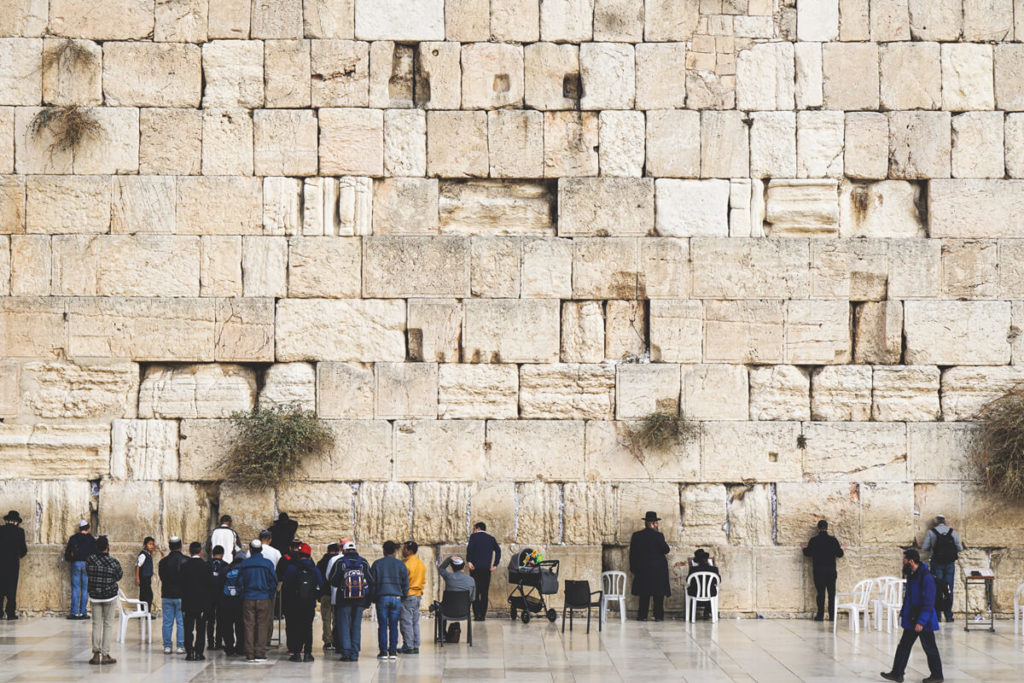
Recognized religious communities in the country are the Jewish, the Islamic, the various Christian, as well as the Druze and the Baha’i. They manage their religious and holy sites themselves. 46% of Jews describe themselves as secular, 32% as traditional, 15% as Orthodox, and 7% as ultra-Orthodox Jews. The majority of Israeli Arabs are Sunni Muslims. There are approximately 113,000 Arab Christians and 25,000 non-Arab Catholics living in the country. As you can see, Israel unites several religions and cultures.
In Israel, Arabic and Hebrew are spoken alongside English. Signs are usually bilingual, either Hebrew and English, or Hebrew and Arabic. Every now and then, you’ll even come across street signs with all the languages. You can get by perfectly well in the country with English and will rarely meet people who don’t understand and/or speak this language.
What does the “Middle East conflict” actually mean?
We don’t want to delve into political topics here, but we will briefly explain why conflicts repeatedly arise in Israel and Palestine. In 70 AD, the Jews were expelled by the Romans. They then spread throughout the world. Jews were also persecuted in many countries for centuries. At the same time, however, they all wanted only one thing – their own state. Naturally, they wanted most to return to where they had lived before, namely Palestine.
However, the majority of the people living in this country were already Arabs, who are now called Palestinians. After World War I, Great Britain (which administered Palestine at the time) allowed Jews to immigrate again. Unfortunately, the situation escalated after the Holocaust in World War II. Hundreds of thousands of Jews from all over the world returned to Palestine.
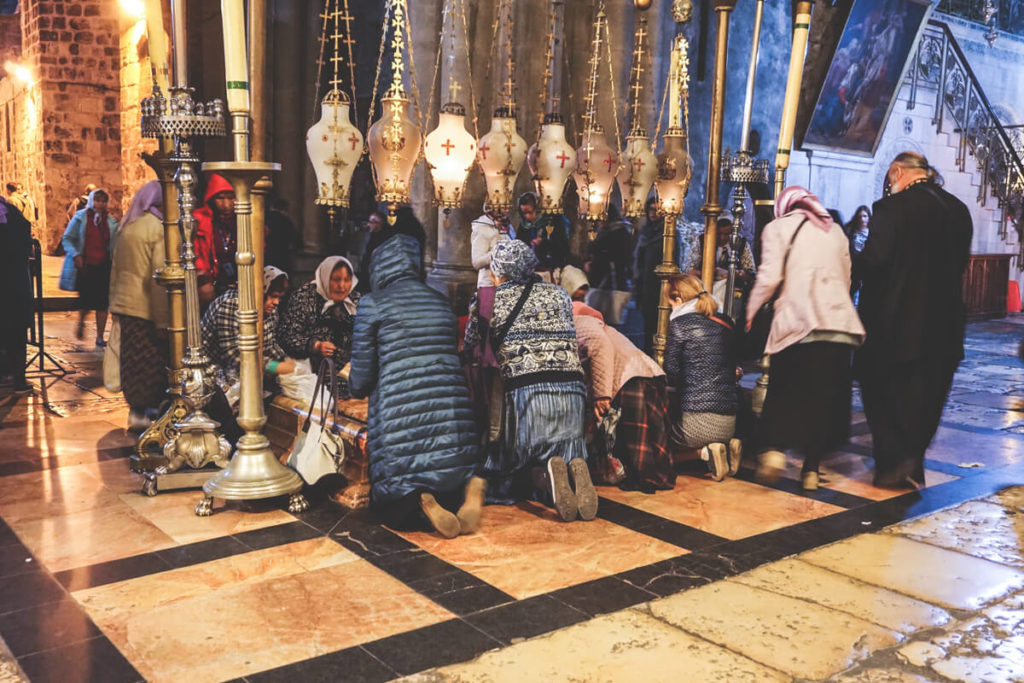
In short, Jews and Arabs now lay claim to the land of Palestine. After World War II, the UN divided the country into two states – Israel and Palestine. Since then, Israelis and Palestinians have been fighting each other. There’s no end in sight. Palestine includes the Gaza Strip, the West Bank, and East Jerusalem. And so the question keeps coming up: Who actually owns the Holy City of Jerusalem?
Jerusalem is claimed as the capital by both Israel and the Palestinians. Jerusalem plays an incredibly important role in the religions of Christians, Jews, and Muslims. This is particularly evident at the Temple Mount, which is located in the Old City of Jerusalem.
The Temple Mount is an important holy site for Jews and Muslims. This issue is certainly present, and you may even hear something about it during your trip. The situation is and remains tense among the population. Always keep this political and historical development in mind.
Where can I book affordable accommodations?
In Israel, you can find countless good accommodations, whether in Tel Aviv, Jerusalem, or at the Dead Sea. We always like to use the Booking.com* platform because it offers such a large selection. It’s obviously a good idea to compare prices on different platforms. At first, we even wanted to couchsurf, but unfortunately, every host turned us down because we were unknowingly traveling during a festival week in the country.
It wasn’t that easy to find affordable accommodations. Many places were already booked long ago. It’s best to find out before your trip whether there are any religious festivals or holidays in Israel during your travel period. Couchsurfing* is absolutely no problem in Israel, though, and you’ll find a huge selection of hosts on the platform.

We ended up booking many accommodations through Airbnb. We’ve only had one bad experience with this platform in the last three years (in Malaysia). You can find more information about our accommodations in the respective posts. Prices are generally quite high in Israel. A night in a hostel in Tel Aviv often costs €20 or more. In Jerusalem, you can get a dorm bed starting at €15 and up. Private rooms start at €25–€35 per night, while a comfortable 3-star hotel room often starts at €60.
What’s the best way to book a rental car?
If you’re interested in traveling around Israel, you should get a rental car. Driving in Israel is really easy, and the roads are well-maintained. A liter of gasoline currently costs around €1.40. You can get a rental car for as little as €18–€25 a day, depending on the model and insurance. We paid €130 for a week and got a standard compact car (including fully comprehensive insurance, no deductible, and a “full-to-full” fuel policy). In the end, that came to around €18 per day for the car.
We rented the car in Eilat, in southern Israel. We booked it in advance through billiger-mietwagen.de*. Everything went smoothly on site, and it was even the first time that we weren’t talked into additional insurance. The rental companies want a deposit of between $500 and $1,500. We “only” had to pay $800. This amount will only be blocked on your valid credit card. This amount will be “unblocked” upon return. Make sure your credit card limit is sufficient for this deposit.
Is driving in the country safe?
Actually, yes! There’s usually not much traffic on the roads outside of the cities. You’ll encounter very few cars in the desert, but that doesn’t make it unsafe. The roads are very well maintained and well signposted. With a navigation device, you can easily get from A to B. Since there aren’t many main roads, you’ll probably find your way around even without one.
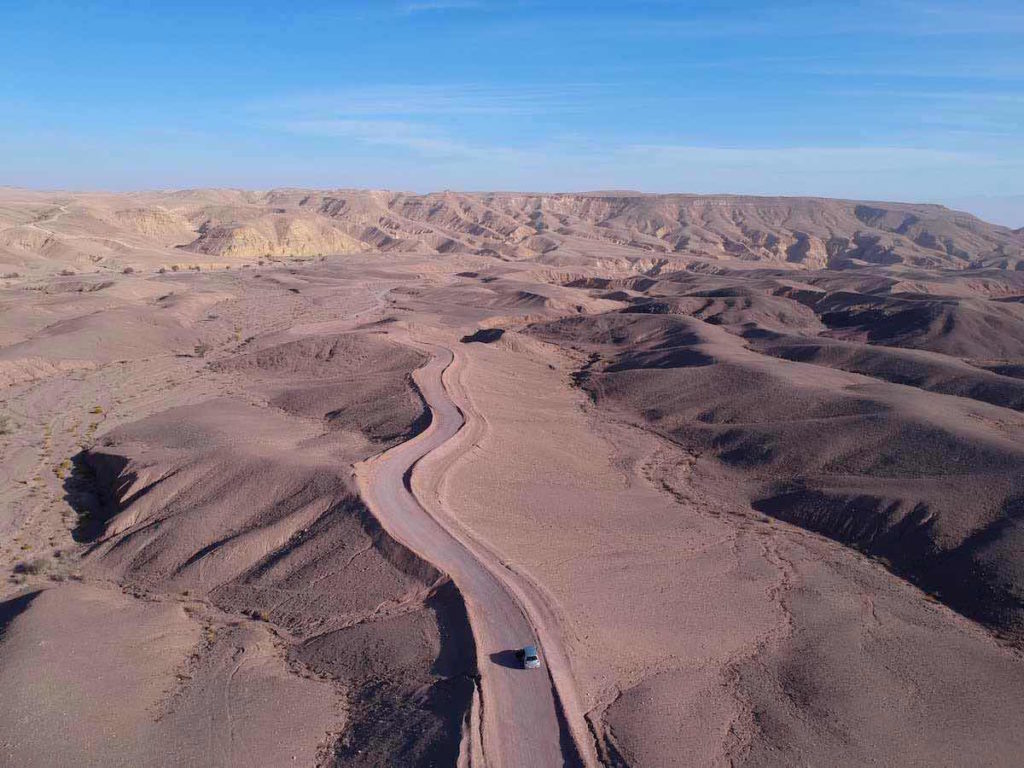
Always follow the rules and don’t let impatient and assertive Israelis sway you. Always stay calm and don’t let yourself get distracted. Just concentrate on your lane. By the way, as a German citizen, you don’t need an international driver’s license. Cool, right? In the previously mentioned article, you’ll find all the information you need about driving in Israel and renting a car.
Can I also travel through the country by bus?
If you have enough time for your Israel tour, you could definitely travel by bus. Egged’s public buses crisscross the country. The buses are usually quite comfortable, and some even have Wi-Fi on board. You can buy tickets at the bus station or directly from the driver. Be aware that some routes are not always served.
Buses can also be delayed. A trip from Tel Aviv to Jerusalem takes around 45–60 minutes and costs only 16 shekels (€3.70). Bus lines 444 and 486 take you from Jerusalem to the Dead Sea. The journey takes around 90 minutes and costs 38 shekels (€8.80). With a bit of stamina and enough time, you can get pretty much anywhere. Egged Buses in Israel – Bus Schedule and Prices.
Food and Drink in Israel
Israel is a melting pot of diverse cultures, and so is the country’s cuisine. Many flavors blend together, with all their contrasts and similarities. There’s no typical Israeli cuisine; it’s more of a mix of East and West. Of course, you have to eat hummus and falafel as much as you can. We haven’t had as much of it anywhere else in the world as we did in Israel.
Typical specialties generally include: shakshuka, avocados, falafel, shishlikim, seniya, Israeli Medjool dates, and hummus. Especially in Tel Aviv and Jerusalem, you can enjoy wonderful food and also find Western food and fast food (pizza, pasta, burgers, fries, kebabs, fish, etc.). If you’re in Tel Aviv, visit one of the wonderful markets (more on this in our Tel Aviv Guide ➳). You can also get delicious Asian food in Israel.
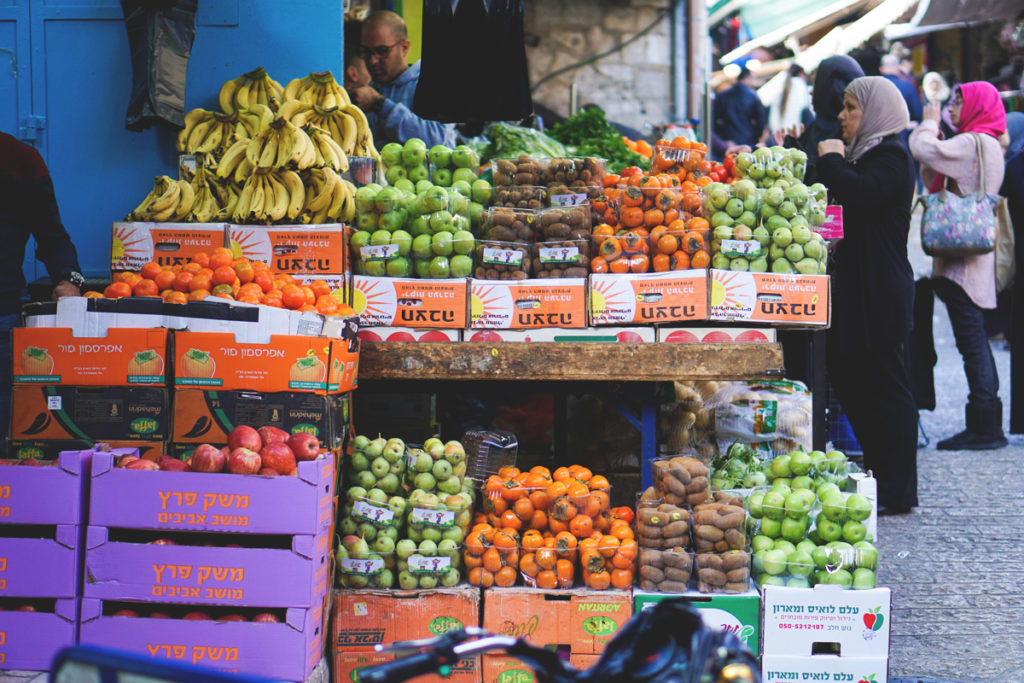
Arabic cuisine is very oriental, with spicy salads, sesame paste, garlic, cumin, olive oil, and more. Eggplant is usually served with it in numerous variations (fried, chopped, stuffed). Be sure to visit the Muslim Quarter on your trip to Jerusalem. Pork is not served in any kosher or Muslim restaurant. Both religions forbid its consumption. Jews are also forbidden from eating seafood. You can eat particularly good fish in the areas of Tiberias, Tel Aviv, Jaffa, and Eilat.
Can I drink tap water safely? Yes, it is drinkable. In addition to water and the usual soft drinks, you can also get freshly squeezed juices at the stalls. Israel is also known for its truly excellent white and red wines. Fruit and vegetables have a very good reputation in Israel. The harvest arrives at the market stalls immediately after picking, within a few hours. You’ll find plenty of them at the markets. Not just apples, melons, artichokes, and citrus fruits, but also kiwis, mangoes, persimmons, loquats, passion fruit, papayas, and cheromoya. Depending on the season, you can also get pomegranates, dates, figs, and giant strawberries.
How much does an Israel tour cost?
A tour through Israel is as individual as your budget. The final cost of your Israel tour depends on many different factors. Israel is quite expensive compared to other travel destinations. Prices are comparable to those in Germany.
The total costs also depend on how you travel through the country. Do you take the public bus? Do you rent a car, or maybe even hitchhike? Do you prefer to sleep in shared rooms, or do you need your own private room? Do you eat in a restaurant every day, or do you prefer cheaper meals at a fast-food restaurant or at the market? Questions, questions, questions!
Roughly speaking, we can tell you that you should expect to spend around €50 to €60 per person per day. We only slept in private rooms, drove a rental car, and dined in restaurants and markets. We also rented a bike or went on an excursion.
If you’re traveling like that, then €50 to €60 is realistic. Hardcore backpackers can certainly get by on less. As always, there’s no upper limit. We ended up spending just under €375 per person for this week (excluding flights).
How safe is a round trip?
This has probably been the most frequently asked question from our readers. How safe is a trip to and through Israel? Our answer: Completely safe! The media always gives you the impression that there’s only war and chaos there. But that’s not the case at all. At least not in the tourist areas.
Our timing for our Israel tour wasn’t exactly perfect either. Shortly before departure, US President Trump announced that he would officially recognize Jerusalem as Israel’s capital. Naturally, the news reported unrest and conflict. We were initially extremely unsettled.
But in the end, we traveled to Israel anyway and were very glad we did. Once we were there, we didn’t notice any of the unrest at all. Of course, you have to get used to seeing armed civilians and soldiers (and even the occasional tank), but ultimately, it’s for your own safety.
In the last 60 years, no tourist has been harmed, neither in Israel nor in Palestine. Israel is also generally considered a very safe destination for tourists. However, you should check the Federal Foreign Office website before your trip.
What’s the internet like?
Israel is known for its excellent internet connection. In many large cities, hostels, cafes, restaurants, and hotels, you can usually get free access. There’s even Wi-Fi on many buses and trains – cool, right? You can get a SIM card from the provider Orange and top it up with up to 50 GB of data. 5 GB for 30 days, for example, costs €23. This way, you’ll be connected to the internet even in remote locations outside of major cities. More information here: Prepaid Israel SIM.
Dos and Don’ts
Like in almost every other country, there are some rules of etiquette in Israel. You have to be aware of several cultures and be prepared for a mix of etiquette rules. People are generally reserved towards women. Provocative behavior is certainly inappropriate, no matter where you are.
As a woman, Bolle never had any problems in Israel, but generally, one cannot speak of consistent equality for women. Women traveling alone are sometimes treated with a certain amount of disrespect (we’ve heard). In Israel, people greet each other with a handshake. If you then say “Shalom,” that is a completely sufficient greeting. Shalom is also said when saying goodbye. Friends and acquaintances like to greet each other with a kiss on the cheek.
As a woman, dealing with ultra-Orthodox Jews is somewhat difficult. Here, you are not allowed to touch anyone, nor are you allowed to greet them with a handshake. If you have friends in Israel who invite you to a special celebration, you should dress accordingly and bring a small gift. Flowers or sweets are always acceptable.
In general, clothing in Israel is quite casual and relaxed. Men also wear shorts in the summer, and women also wear skirts and dresses (at least in Tel Aviv). However, women should not dress too revealingly. If you visit religious sites, you should adhere to special dress codes.
Women must dress very conservatively in synagogues. They should also cover their heads with a scarf. Men are expected to wear a kippah (e.g., at the Western Wall in Jerusalem).
In some restaurants, you will notice that women and men sit separately. This is perfectly normal. It is also normal to sit there for hours without eating or ordering anything. By the way, tips are expected in Israel, so don’t be too stingy with your money. In general, however, Israel is relaxed. Where typical Jewish cooking is practiced, you have to be prepared for special dietary requirements (kosher food).
It’s also important for you to know that photographing military installations is usually prohibited. You’ll get into trouble if you take pictures of government facilities or police stations. So keep this in mind when driving through military zones (e.g., in the Negev Desert).
People like to chat, even about anything and everything. Israelis are very modern and open-minded anyway. However, the topic of the Middle East conflict shouldn’t be overplayed unnecessarily. Germans shouldn’t discuss World War II either. If you’re asked about political topics, at least try to remain neutral in the situation and not take sides.